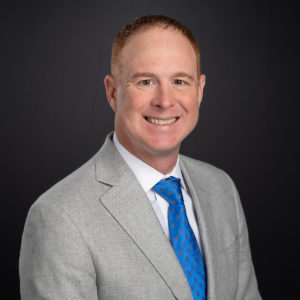CEO Message: Annual Conference for Economic Developers

As I’ve shared in the past, following two years of being dormant our industry is slowly returning to travel for work, training, and marketing. City visitations with state and regional partners have resumed to market central Texas as the place for company expansion. The Williamson County Economic Development Partnership hosted local developers and brokers at the Round Rock Express. Our team will have traveled to Washington D.C. twice in four weeks with the U.S. Chamber and with the Association of the U.S. Army.
Last week, Jordan Robinson (Chamber VP for Economic Development) and I traveled to Nashville to attend the International Economic Development Council (IEDC) Annual Conference. IEDC is the industry association for economic developers, and the one from which I received my certification (Certified Economic Developer). We are grateful the Chamber sends us to these meetings. Every year we come back with new ideas, best practices, and a better understanding of our own needs.
This year was one of the most productive conferences of the IEDC in recent memory. Our colleagues gathered during the most unique and unusual set of macro-economic drivers our nation has ever experienced. Three themes arose in nearly every session we attended:
Companies are Expanding Rapidly
Nashville had much in common with the Austin region. Cranes were visible throughout the city skyline. There is more expansion activity nationally at this time than ever before in large and mid-size cities. It’s created real upward economic movement for millions of Americans as measures associated with poverty and underemployment have declined since the previous census. The investments made by the government in the PPP or the American Recovery Act have helped, leading to a faster recovery than what would have otherwise occurred.
Supply and Logistics Shortages Hinder Progress and Have Initiated a Wave of Reshoring
After the economy was put on hold for several months in 2020, re-starting business activity was easier said than done. All sectors of the economy are built on complicated just-in-time logistics and delivery systems. Restarting these intricate systems is not like turning on a toaster. The web of interrelated supply chains is still struggling to gain equilibrium, slowing production across all construction, as well as production of everything from integrated circuits, clothing, lumber and even toasters. The combined economic expansion with the continuing disruption is bad news because supply issues will continue for at least a year, and possibly more. The good news is free market systems naturally find the fastest way to solve complex supply issues as cheaply as the market will bear. It is slowing the economy, but it will be temporary.
Talent Attraction is the Largest Challenge in Every City
Every local employer we speak with indicates recruiting talent it the number one concern at this time. This was the case before the pandemic, and the recovery has only worsened the pain. All cities are feeling the same talent pinch, and at every skill level. It’s forced innovation from employers and education leaders, and I’m proud to report that our efforts are consistent with other similar communities.
DCI presented their excellent workforce and talent insights study, which Jordan has wonderfully summarized in her article this week. It is much more complicated than, “people just don’t want to work anymore”. Diversity and inclusion efforts still matter greatly. The urban exodus is a myth and not backed up by data. Large cities will change, but they will continue to grow and dominate the economy.
There are much larger issues at play. The U.S. economy, and most certainly the greater Austin MSA, now has the capability to grow beyond the workforce it can sustain. There are no easy ways to address the underlying forces. However, we can (and must) compete. This means making smart investments in quality of life, community amenities, and modernized transportation infrastructure.
One final anecdote related to workforce:
On any trip to Nashville’s downtown entertainment core, you are sure to see tour busses full of music fans, bachelorette parties, and revelers – cruising slow through the music district, having a “mobile” party. We met one of the employees who had recently started working for one such business as a bartender. Only weeks before, she had been a working nurse in a large healthcare institution. She left that industry not because she didn’t want to work, but because she made more in her current role without the massive stress associated with nursing in the era of COVID.
She was happier and better off financially. It was an important reminder that all career decisions are individual and deeply personal. I don’t know what her decision might mean for her career years down the road. Perhaps she will return to nursing later. But it was difficult to argue she had not acted in her own best interests at that particular time.
The labor market is another free market, and just like with logistics, individuals making decisions drive the trends. Our future success depends on maintaining Round Rock as a place that is both desirable to live in, and economically vibrant to work in.
#TomorrowTogether
Jason
Contact Us. We’re Here to Help.
Get in touch with our team to learn more about how the Round Rock Chamber can help.